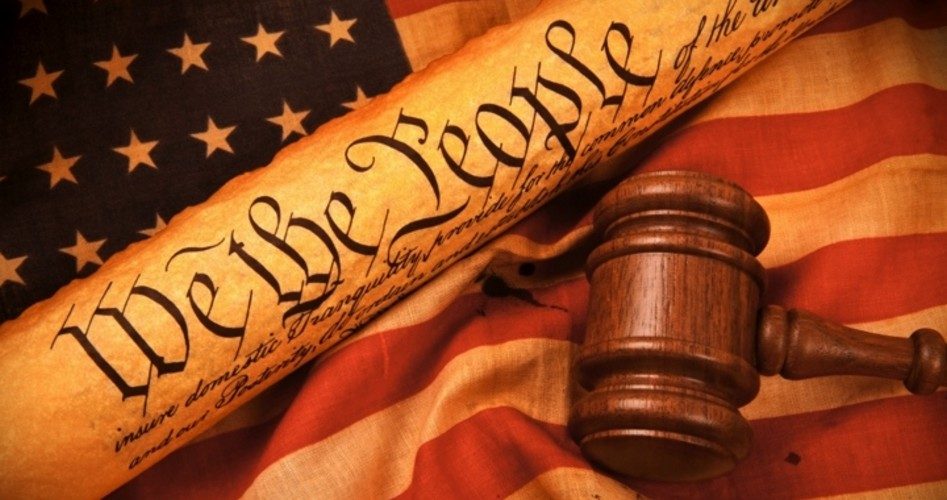
How far from our constitutional moorings has this country drifted? Probably farther than you think, if the following story is an accurate indication.
During a pre-trial hearing late last month, a municipal judge in Ohio approved a prosecutor’s motion to block a defendant from referencing the U.S. Constitution in his challenge of a law which he is charged with violating.
A story published in TruthVoice summarized the proceedings:
Judge Catherine Barber (or Kathryn Barber), a retired judge filling in for the Xenia Municipal Judge Michael Murray stated “there will be no mentioning of the Constitution” and then laughed when the defendant claimed that uttering words on a public sidewalk constitutes free speech. (The audio of the hearing can be found here: http://bambuser.com/v/5372976). This was in response to a suggestion from the prosecutor that bringing up the constitution and civil rights “will confuse the jury.”
About a month ago, Virgil Vaduva, a journalist and editor of The Greene County Herald purposefully stood in front of the Xenia police station in an attempt to raise awareness about the constitutionality of the city’s anti-panhandling law.
Vaduva recorded a video of his encounters with local people, many choosing to make a donation to a local charity in town as a result of his actions. Vaduva was cited by the Xenia police for “panhandling” which is a fourth degree misdemeanor.
A month before the trial, a Xenia police officer threatened to arrest Vaduva for arguing with him on the newspaper’s Facebook page. The officer, identified on Facebook as Paul Harris, posted a message directed at Vaduva informing him that he will charge him with an additional misdemeanor, implying that it is a crime to disagree with a police officer.
Putting aside Officer Harris’ hubris, it is a mark of unacceptable megalomania for a judge to demonstrate such open and hostile disdain for the Constitution.
It is, admittedly, only one judge (that we know of), but it is undeniable that there is a sense that such attitude of irrelevancy is approaching zeitgeist.
Furthermore, the entire episode seems discomforting in light of the following wisdom from one of our most eloquent Founders:
Patrick Henry, speaking at the Virginia ratification convention, warned what could happen when Congress and the courts collude to rob states of sovereignty and citizens of liberty. Said Henry,
If there be a real check intended to be left on Congress, it must be left in the state governments. There will be some check, as long as the judges are incorrupt. As long as they are upright, you may preserve your liberty. But what will the judges determine when the state and federal authority come to be contrasted? Will your liberty then be secure, when the congressional laws are declared paramount to the laws of your state, and the judges are sworn to support them?
If our liberties, particularly liberties as fundamental as the freedom of speech that Vaduva was forbidden from even mentioning, are held to be alienable at the will of pinch hitting municipal judges, then, as Patrick Henry predicts, tyranny is torn free from its constitutional fetters and freedom will have no safe harbor.



